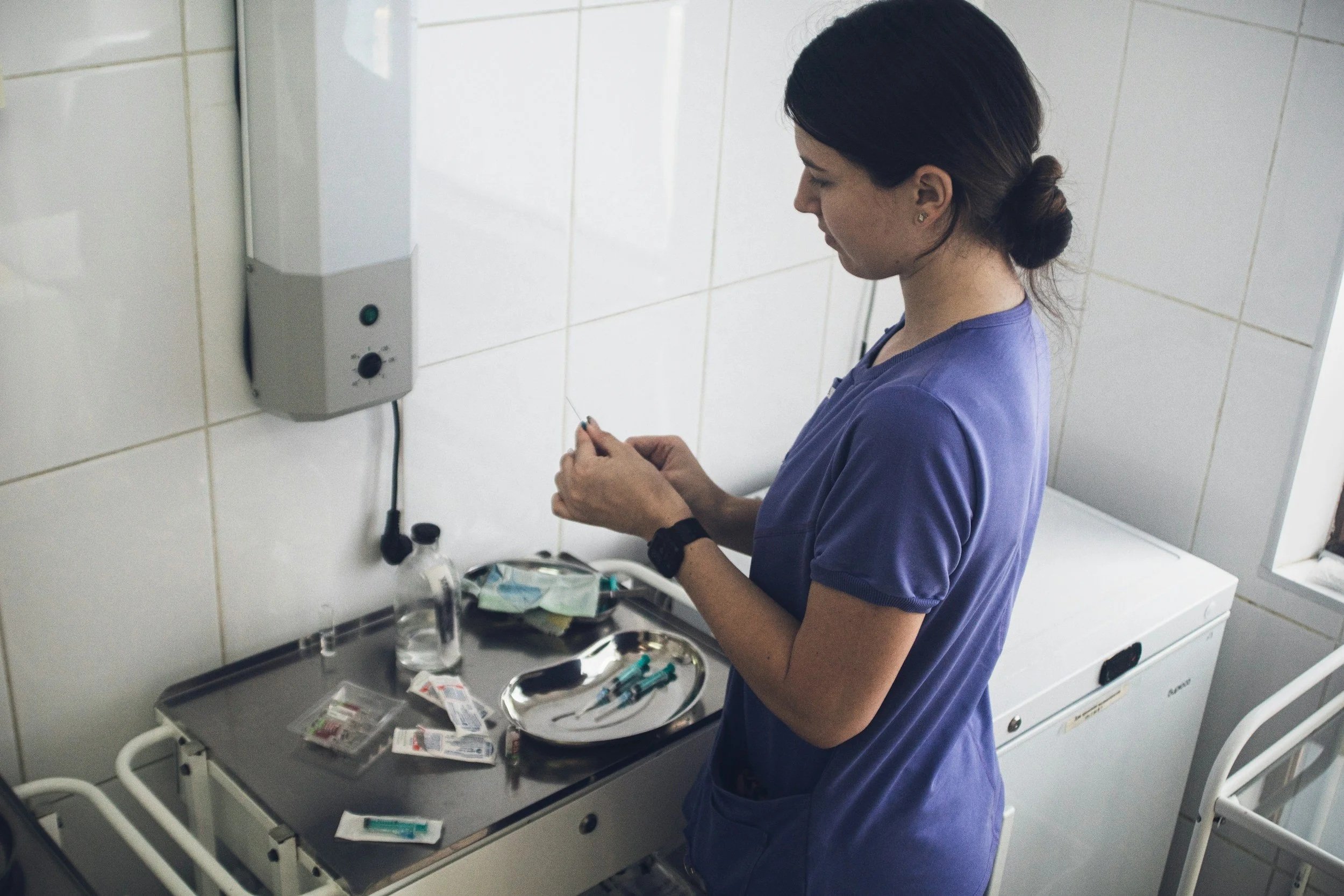This may not be a decision you have to make in the near future, but it is always a good idea to understand your options if you decide not to use your frozen eggs or if you have more than you end up needing. From donating to other individuals or to helping train embryologists, there are many ways that your eggs could help others if you don’t use them.
You spent a lot of money, time, and energy freezing your eggs, so it’s understandable that you want to ensure they are put towards some good, whether it be advancing science or helping another family grow. Ultimately, this is a personal decision that shouldn’t be taken lightly, and it is always recommended that you talk through your options more with your fertility team.
Store Them: You always have the option to continue to keep your eggs stored and frozen. While some countries have storage limitations, the US does not have any time limits. You can choose to continue storing your frozen eggs. While the only downside is requiring you to pay every year, this option is ideal if there is a chance you may want to use them. Learn how to reduce the cost of frozen eggs in our Guide to Storing Your Frozen Eggs.
Donate Them to a Person or Couple: You can donate to hopeful parents. If not conducted at the time of freezing, you may need some additional blood testing like HIV and Hepatitis B and C, in addition to completing screening questions. Generally, though, FDA labs are required only if the eggs are collected with the intent of donating. Talk to your provider about requirements for donation of already frozen eggs, as this may differ by clinic. It is also important to ask them about compensation. While most egg donors are usually compensated at the time of egg donation, retroactive compensation for eggs is not common. Most unused eggs are instead “gifted.”
Donate Them to Science: In some cases, with your explicit consent, your frozen eggs could be used for research or training purposes, which can contribute to the advancement of the embryology profession and allow embryologists to train and learn new techniques. Many advancements in the field of embryology and reproductive endocrinology would not be possible without donated gametes.
Discard Them: If you decide you no longer want to keep your frozen eggs and do not wish to donate them, you can request the fertility clinic to discard them.
It is important to discuss your options and any concerns with your fertility specialist. They can provide detailed information about storage fees, legal implications, and potential uses or alternatives for your frozen eggs. While you may have indicated your wishes for unused eggs before beginning the process of egg freezing, it is always possible to change your mind about what you would like to do with your unused eggs.

David E. Tourgeman, MD, FACOG is a double-board certified OB/GYN and REI physician with special interests in assisted reproductive technologies and oocyte donation in women of advanced reproductive age, advanced fertility surgeries, and alternatives for enhancing embryo implantation. Dr. Tourgeman has been with HRC Fertility since 2005, and has been featured in The New York Times and Women’s Health publications as well as on Good Morning America.
Learn more about HRC Fertility’s egg freezing practice on Freeze.
Answered by Dr. Roy Handelsman from HRC Fertility. Understand how ovarian cysts and ovarian surgery may impact the egg freezing process.
Answered by Dr. Rashmi Kudesia from CCRM Fertility Houston. Here’s a checklist for before, during, and after your egg freezing consultation, including 11 questions you should ask the doctor.
Answered by Valerie Shafran, MSN, FNP-C from Extend Fertility. Discover why fertility experts urge women to stop taking GLP-1 agonists before an egg freezing cycle.
Answered by Dr. Nidhee Sachdev from South Coast Fertility Specialists. Explore what AMH tells us about a woman’s ovarian reserve or how many eggs she has left.
Answered by Dr. Hade from Generation Next Fertility. Understand how egg freezing does not cause long-term weight gain yet there is a chance of transient bloating.
Answered by Rijon Charne, JD from Sunray Fertility. Explore what a reproductive estate plan entails and the situations where having one can make a big difference.
Answered by Rijon Charne, JD from Sunray Fertility. Learn more about the importance of clinic disposition forms, including what they do and don’t cover.
Answered by Rijon Charne, JD from Sunray Fertility. Discover the legal nuances that can shape your options when freezing eggs or embryos.
Answered by Dr. Joshua Klein from Extend Fertility. Learn how birth control relates to egg freezing and if you will need to stop your hormonal birth control before starting the procedure.
Answered by Dr. Jesse Hade from Generation Next Fertility. Discover the important factors that affect chances of egg freezing success in your late thirties.
Answered by Sidonia Buchtova, PA-C, C-RHI from Refresh Psychiatry. Understand if you can stay on an SSRI or SNRI when freezing your eggs.
Answered by Sidonia Buchtova, PA-C, C-RHI from Refresh Psychiatry. Discover tips to help support your mental well-being during preparation, throughout the cycle, and after your egg retrieval, especially if you have a history of anxiety.
Answered by Dr. Katharina Spies from Vida Fertility. Learn about who should consider supplements before and during fertility preservation, and how supplements could support your egg freezing cycle.
Answered by Dr. Serin Seckin from Generation Next Fertility. Understand the key differences to help you make an informed decision that aligns with your personal and reproductive goals.
Answered by Dr. Ido Feferkorn from the Reproductive Medicine Group. Learn how Polycystic Ovarian Syndrome (PCOS) may affect the egg freezing process and outcomes of fertility preservation.
Answered by Dr. Meera Shah from Nova IVF. Understand the potential risks of egg freezing to help you evaluate if it is right for you.
Answered by Dr. Hade from Generation Next Fertility. Learn from start to finish the entire process of what happens on the final day of an egg freezing cycle.
Answered by Dr. Sahar M. Stephens from Northern California Fertility Medical Center. Understand the probability of pregnancy based on the number of eggs frozen and the age at which you freeze.
Answered by Dr. Alison Peck from HRC Fertility. Discover which medications are commonly used for ovarian stimulation during an egg freezing cycle.
Answered by Dr. Kathryn Snow from Piedmont Reproductive Endocrinology Group (PREG). Understand the side effects that you may experience when freezing your eggs.
Answered by Lia Schiller, MSN, AGNP-BC from Extend Fertility. Learn why IUDs can stay in place throughout the egg freezing process.
Answered by Dr. Woo from HRC Fertility. Learn how some medications need to be stopped for an egg freezing cycle while some medications can be continued.
Answered by Dr. Dan Nayot from The Fertility Partners. Learn how artificial intelligence is providing women with more information than ever before about their eggs.
Answered by Dr. Joshua Klein from Extend Fertility. Egg freezing doesn’t impact your chance of getting pregnant naturally, because egg freezing makes use of eggs that would otherwise have been lost.
Answered by Dr. Dan Nayot from The Fertility Partners. Understand the distinction between egg quantity and quality, and explore how AI is transforming egg quality analysis.
Answered by Dr. David E. Tourgeman from HRC Fertility. Understand what options exist for what to do with your frozen eggs if you decide not to use them for IVF.
Answered by Dr. Armando Hernandez-Rey from Conceptions Florida. Learn about minimal stimulation egg freezing cycles and how they can decrease the risk of ovarian hyperstimulation syndrome.
Answered by Dr. Ido Feferkorn from the Reproductive Medicine Group. Find out how egg freezing medications work and how protocols can be adjusted if you can’t take estrogen.
Answered by Dr. Ido Feferkorn from Reproductive Medicine Group. Learn how egg freezing fits into the menstrual cycle and how timing can be customized.
Answered by Dr. Elena Santiago from Vida Fertility. Understand the ins and outs of egg freezing in Spain as a non-resident, including timing, costs, and more.






























